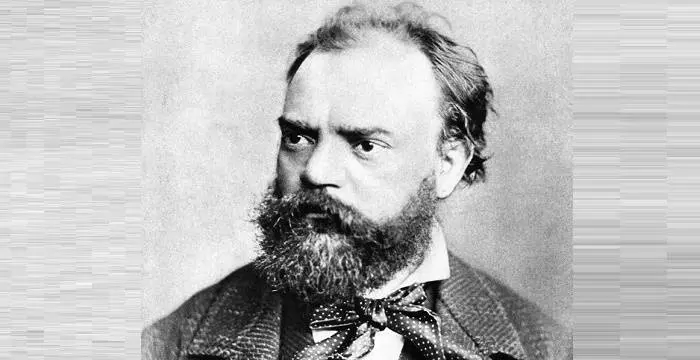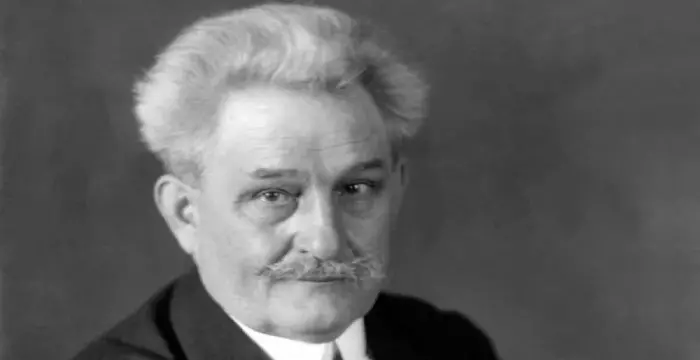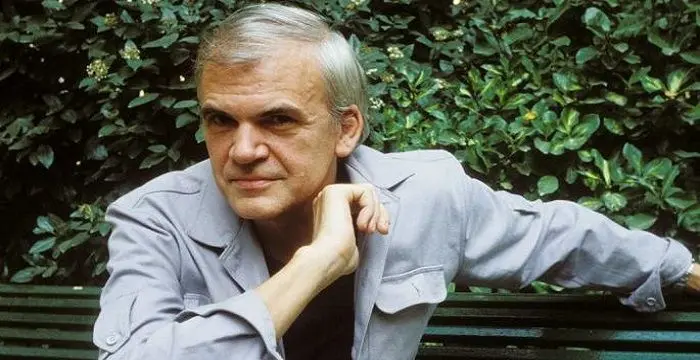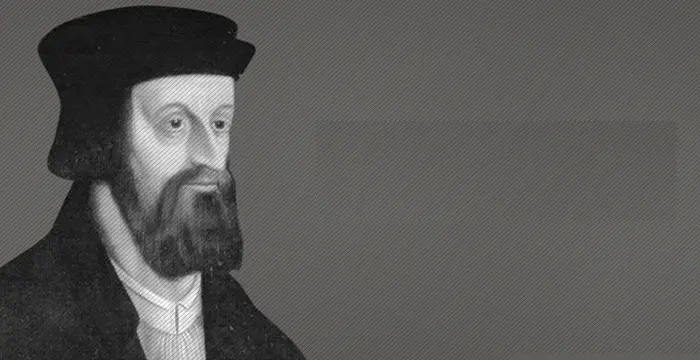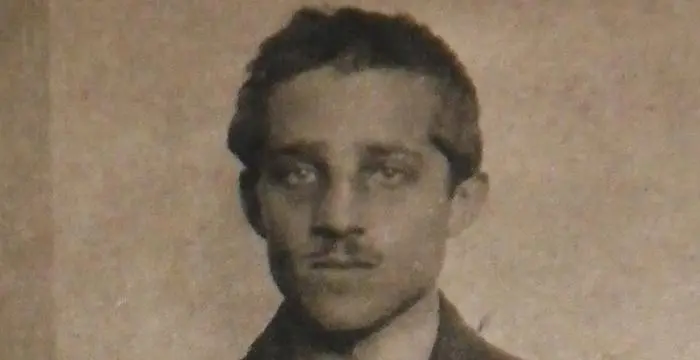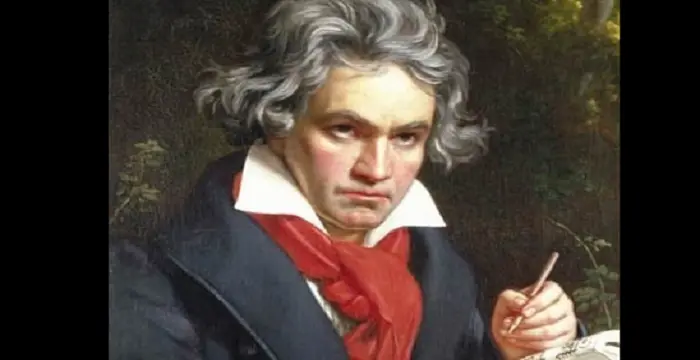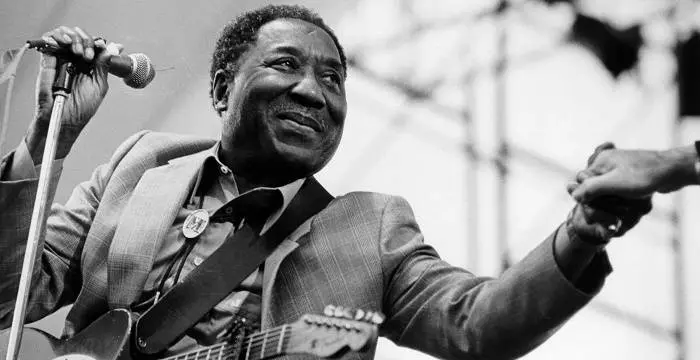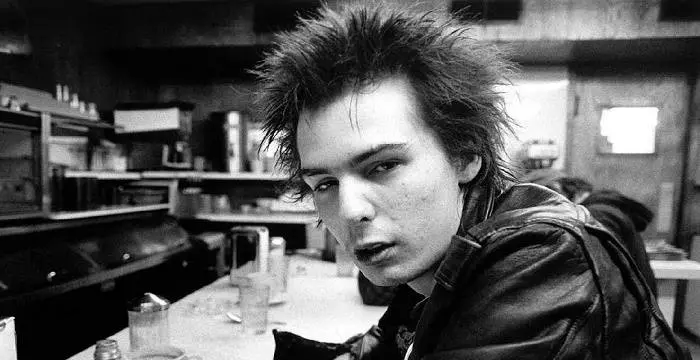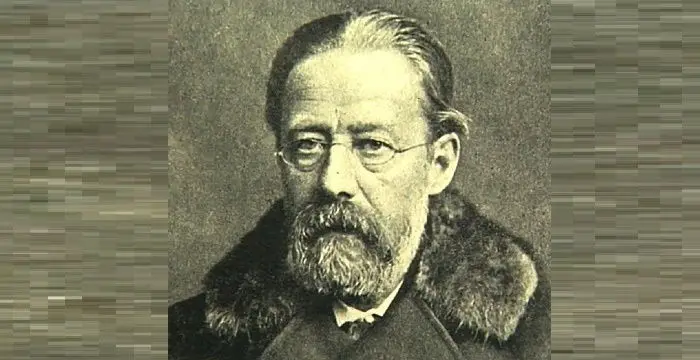
Bedrich Smetana - Czech Men, Career and Childhood
Bedrich Smetana's Personal Details
Bedrich Smetana was an eminent Czech composer
| Information | Detail |
|---|---|
| Birthday | March 2, 1824 |
| Died on | May 12, 1884 |
| Nationality | Czech |
| Famous | Musicians, Composers, Czech Men, Czech Musicians |
| Spouses | Katerina Kolárová |
| Siblings | Karel |
| Childrens | Bedriska |
| Birth Place | Litomyšl |
| Gender | Male |
| Father | František Smetana |
| Mother | Barbora Lynková |
| Sun Sign | Pisces |
| Born in | Litomyšl |
| Famous as | Composer |
| Died at Age | 60 |
// Famous Czech Musicians
Antonín Dvořák
Antonin Leopold Dvorák was one of the greatest romantic composers who still lives in the hearts of music lovers through his memorable symphonies. Read on to know more about his childhood, life, and timeline.
Leos Janacek
Leos Janacek was a Czech musician who was considered as one of the nation’s great composers for the mature style of writing that he adopted. Read further to know more his profile, childhood, life and timeline.
Bedrich Smetana's photo
Who is Bedrich Smetana?
Titled as “father of Czech music,” Bedøich Smetana was a famous Czech composer who pioneered the development of a musical style in Czech. His style of composing became closely identified with Czech’s aspirations for an independent statehood. He attained fame with his opera “The Bartered Bride” composed for the symphonic cycle Má vlast ("My Fatherland"). This opera depicts the legends, history, and landscape of Czech, his native land. Another composition, “First String Quartet From My Life” was also a great success and his fame spread across borders. A naturally gifted pianist, Smetana was deemed as a child prodigy who gave his first public performance at the age of six. Regarded as the most talented and popular musician Czech has ever had, Smetana enjoyed more reverence and popularity than his contemporaries. He was a highly passionate and strong willed individual who overcame all hurdles so far his musical career was concerned. Though often described as frail and unimpressive, he enjoyed a great fan following and was especially popular among females. Plagued by deafness and mental collapse, this great composer had faced tough times in his life. Read this biography to know about his childhood career and personal life.
// Famous Czech Men
Milan Kundera
Milan Kundera is a Czech-born French writer known for his erotic and political writings. This biography of Milan Kundera provides detailed information about his childhood, life, achievements, works & timeline.
John Huss
Jon Huss was a noted academic, priest and church reformer, born in the latter half of the 14 century in the Bohemian town of Husinec. Check out this biography to know about his childhood, life and achievements.
Gavrilo Princip
Gavrilo Princip was a Yugoslav nationalist and a member of ‘Mlada Bosna’ (Young Bosnia) movement.
Biography detail
Bedrich Smetana's Early Life And Childhood
Bedøich Smetana was born to Frantisek Smetana and Barbora Lynkova on 2 March 1824 in Litomyšl, Bohemia. He was born as the third child and had nine siblings. His father had eighteen children from three marriages, eight children in early two marriages and ten in the third marriage (Smetana’s mother). The Smetana family hailed from the Hradec Králové region of Bohemia. František, Smetana’s father, was a brewer and later during the Nepoleonic Wars, he accumulated moderate wealth by supplying clothing and provisions to the French Army. He then owned several breweries and subsequently moved to Litomyšl in 1823 and became brewer to Count Waldstein.
Smetana exhibited flair in music from childhood itself and became a competent violinist playing in string quartet. Smetana’s father supported his son’s talents and in 1830, at the age of six, he gave his first public performance. Later, he played a piano arrangement at a concert held in Litomyšl's Philosophical Academy. His family moved to Jindøichùv Hradec, south of Bohemia in 1831 and Smetana attended the local elementary school and gymnasium here. He learned violin and piano and started to admire Mozart and Beethoven. Then he ventured into composing music.
His family moved to southeastern region of Bohemia. They could not find a good school there and so, Smetana was sent to the gymnasium at Jihlava. Extremely homesick, Smetana could not study properly there and was called back home. He was then put to Premonstratensian School at Nìmecký Brod. He got a comfortable atmosphere there and made good progress. It was at there he met Karel Havlíèek, who became a famous Czech revolutionary poet later, and made a cordial relationship with him. Smetana moved to Prague’s Academic Grammar School under Josef Jungmann, who was a prominent figure in the movement for Czech national revival, a distinguished poet and linguist too.
Smetana arrived in Prague in the autumn of 1839 to join Jungmann's school. He experienced an unfriendly atmosphere there because his classmates mocked him for his country manners. Feeling insulted, Smetana started bunking classes. He expressed more interest in attending concerts, visiting opera house, and listening military bands. He then joined an amateur string quartet and composed simple pieces of music while there. He gradually became convinced of the fact that nothing other than music can satisfy him and thus, decided to pursue music as his career. However, Smetana’s father came to know about this truancy and moved him away from the city and thus, the idyll episode at Prague ended abruptly. Smetana was sent to his uncle’s place in Nové Mìsto, where he entered into a romantic relationship with his cousin Louisa. He depicted their passion in his work Louisa's Polka, his earliest complete composition that has survived.
As Smetana’s older cousin, who worked as a teacher at the Premonstratensian School in Plzeò (Pilsen), took initiative to supervise his schooling, Smetana was sent to Plzeò where he remained till 1843. He started playing pianos in many soirées and became popular. He stepped into many relationships while at here, the major one being the one he had with Kateøina Koláøová. He loved her passionately and said, “When I am not with her I am sitting on hot coals and have no peace.” He created many compositions for her.
Smetana completed his schooling and his father allowed him to go forward with musical career. František’s good fortune seemed left him and his financial conditions became worst and could not provide Smetana with any financial support. Smetana moved to Prague again in August 1843. He lacked formal training in music and was in a need for a teacher when Kateøina Koláøová's mother introduced him to Josef Proksch, head of the Prague Music Institute where Kateøina was studying then. Proksch used most modern teaching methods to train Smetana. He was placed as a music teacher to the family of Count Thun, a noble man and thus gained a bit ease in his financial career.
Career
Smetana continued taking lessons on theory and composition under the guidance of Proksh for three years along with offering music lessons to Count Thun’s children. During this time, he composed songs, bagatelles, dances, impromptus and the G minor Piano Sonata. Smetana started attending concerts in Prague, performed by the French master Berlioz and met him at a reception arranged by Proksch. Smetana performed his G minor sonata in front of Robert and Clara Schumann but they identified too much of influence of Berlioz in it and hence, didn’t approve it. Smetana became a revolutionary during 1848, for a brief period. Smetana wrote a series of patriotic works because of the influence of Pro-democratic movement. He started a piano institute in 1848 with twelve students. There were some special visitors like Liszt and the former emperor Ferdinand. Smetana’s style resembled that of Chopin with delicate, crystalline touch. Smetana made his initial travel Gothenburg and opened a music school there. Soon his school became overwhelmed with applications. He then became conductor of the Gothenburg Society for Classical Choral Music and gained both professional and social recognition in the city.
In 1861, Smetana composed an opera reflecting Czech national character and hoped that he might be considered for the theatre's conductorship, but that post was granted to Jan Nepomuk Maýr, apparently because the authorities considered Smetana a "dangerous modernist." Smetana then concentrated on an opera competition organized by Count Jan von Harrach. The prize offered was 600 gulden each for the best comic and historical operas but it should be based on Czech culture. Smetana had no useful model to follow and so, he had to create his own style. He chose Karel Sabina as his librettist and they worked on a story of the 13th century invasion of Bohemia by Otto of Brandenburg. They completed the work in April 1863 and submitted for evaluation under the title “The Brandenburgers in Bohemia.” Smetana won Harrach's opera competition and Music historian Rosa Newmarch said that Smetana’s this particular composition contains all the seeds of Smetana's operatic art. Smetana's was not very comfortable with Czech language as he, just like his other contemporaries, was educated in German and hence faced great difficulty in expressing himself in his mother tongue. He decided to learn Czech language and developed fluency and composed patriotic choruses for the Society.
Smetana completed his second opera titled "The Bartered Bride" in 1863, but its first performance was a failure due to its untimely staging. It was staged on the eve of Austro-Prussian War with Bohemia and hence, was poorly attended. This opera was performed again at the Provisional Theatre in September 1870 and became a tremendous public success. Smetana began to work on his fifth opera, "The Two Widows," which got completed in 1874. This was performed at Provisional Theatre on 27 March 1874 for the first time and Smetana's supporters presented him with a decorative baton. Smetana fell ill by summer that year. He was suffering from throat infection followed by a rash and an apparent ear blockage. He became unable to work and asked his deputy, Adolf Èech to take care of his works.
Personal Life
Smetana and Kateøina got married on 27 August 1849 and the couple had four daughters. He lost his second daughter Gabriela in July 1854 due to tuberculosis. A year later, he received another blow as his eldest daughter Bedøiška died of scarlet fever. Struck with grief, Smetana paid a tribute to her with a Piano Trio in G minor. His wife gave birth to his fourth daughter immediately after the death of Bedøiška, but she too died in June 1856. Destiny continued its cruel game with Smetana and this time the bad luck lighted on his wife as she was with tuberculosis. Adding to his grief, his father František died in 1957. Smetana returned to Gothenburg with his wife Kateøina and daughter Žofie. Before starting, he visited Liszt in Weimar and became Smetana’s principal teacher throughout his creative life. Kateøina's health was becoming worse day after day and she died at Dresden on 19 April 1859. After Katarina’s death, Smetana left his daughter Žofie with Kateøina's mother and spent time with Liszt in Weimar. It was then that he got to know about the comic opera “Der Barbier von Bagdad” composed by Liszt’s pupil Peter Cornelius and was impressed by this work. Smetana then stayed with his younger brother Karel, where he met his brother’s sister-in-law Barbora (Bettina) Ferdinandiová, who was sixteen years younger to him. He married Bettina on 10 July 1860 and returned to Sweden and had four. The couple’s first child, Zdeòka, was born in September 1861. Bettina gave birth to their second daughter Božena in 1864.
Illness And Death
Smetana’s right year stop functioning totally and he thought of resigning from his responsibilities. He resigned and the theatre offered an annual pension of 1,200 gulden asking him to grant them the right to perform his operas. Smetana accepted the offer. His students and his former lover Fröjda Benecke collected an amount of 1,244 gulden, which allowed him to seek medical treatment abroad, but in vain.
Smetana continued composing even in this stage. Smetana had started composing a cycle of six symphonic poems called Má vlast ("My Fatherland”) and he completed this work, which was first performed cycle being first performed on 5 November 1882, and Adolf Èech moved the baton for this. His health conditions worsened by 1882–83 and he started experiencing insomnia, depression, hallucinations, giddiness, cramp and temporary loss of speech. In 1883, he started composing a new symphonic suite named Prague Carnival, but he could not take it beyond introduction and a Polonaise. His mental health was deteriorating rapidly and started to get violent periodically. Being unable to manage him his family members admitted him to Kateøinky Lunatic Asylum in Prague. He died there on 12 May 1884. The hospital authorities mentioned the cause of death as senile dementia though his family believed that both his physical and mental decline was due to syphilis. His body was buried on 15 May, at the Týn Church in Prague's Old Town. His funeral procession to the Vyšehrad Cemetery was led by members of the Hlahol with a large crowd following. He was survived by Bettina, their daughters Zdeòka and Božena, and by Žofie his daughter with Kateøina.
Important Works
Operas
- Braniboøi v Èechách, “Brandenburgers in Bohemia, 1866
- Prodaná nevìsta, “The Bartered Bride”, 1866
- Prodaná nevìsta, “The Bartered Bride”, 1870
- Dalibor, 1868
- Libuše , 1881
- Dvì vdovy, “The Two Widows”, 1874
- Hubièka, “The Kiss, 1876
- Tajemství, “The Secret”, 1878
- Èertova stìna, “The Devil’s Wall”, 1882
Orchestral Music
- Má vlast (My Homeland)
- Richard III, symphonic poem
- ‘Triumphal’ or ‘Festive’ Symphony in E major
- Wallenstein’s Camp, symphonic poem
- Prague Carnival
- Festive Overture in D major
- Håkon Jarl, symphonic poem
- March for Shakespeare Festival
Chamber Music
- String Quartet No. 2 in D minor
- From My Homeland for piano and violin
- String Quartet No. 1 in E minor “From My Life”
- Piano Trio in G minor, Op. 15
// Famous Composers
Ludwig van Beethoven
Ludwig Van Beethoven was one of the greatest composers the world has ever had. Check out this biography to know about his childhood, family life, and achievements.
Emina Jahović
Emina Jahović Sandal is a Serbian model, actress and singer-songwriter. Know more about her childhood, life, career, achievements and timeline in this biography.
John Denver
John Denver, a famous American singer-songwriter and activist, is remembered for songs like Take Me Home, Country Roads and Annie's Song. To know more about his childhood, career, profile and timeline read on
// Famous Musicians
Ted Nugent
Ted Nugent is a hard rock musician known for his hits ‘Stranglehold’ and ‘Cat Scratch Fever’. This biography of Ted Nugent provides detailed information about his childhood, life, achievements, works & timeline.
Muddy Waters
Muddy Waters was a blues musician referred to as the 'father of modern Chicago blues.' Check out this biography to know about his childhood, family life, achievements and fun facts about him.
Travis Bacon
Travis Bacon is an American musician and actor, better known as the son of veteran actors Kevin Bacon and Kyra Sedgwick. Find more about his family, birthday, etc.
Andrew Taggart
Andrew Taggart is an American DJ who gained fame as one half of the famous DJ duo ‘The Chainsmokers,’ alongside Alex Pall. Let’s take a look at his childhood, family, personal life, career, achievements, etc.
Mike Love
One of the famous members of ‘The Beach Boys’, Mike Love is an American singer, musician and lyricist. Check out this biography to get more detailed information on his life.
Sid Vicious
Sid Vicious was an English musician known for his work with the band ‘Sex Pistols’. Check out this biography to know about his childhood, family life, achievements and fun facts about him.
Bedrich Smetana's FAQ
What is Bedrich Smetana birthday?
Bedrich Smetana was born at 1824-03-02
When was Bedrich Smetana died?
Bedrich Smetana was died at 1884-05-12
Where was Bedrich Smetana died?
Bedrich Smetana was died in Prague
Which age was Bedrich Smetana died?
Bedrich Smetana was died at age 60
Where is Bedrich Smetana's birth place?
Bedrich Smetana was born in Litomyšl
What is Bedrich Smetana nationalities?
Bedrich Smetana's nationalities is Czech
Who is Bedrich Smetana spouses?
Bedrich Smetana's spouses is Katerina Kolárová
Who is Bedrich Smetana siblings?
Bedrich Smetana's siblings is Karel
Who is Bedrich Smetana childrens?
Bedrich Smetana's childrens is Bedriska
Who is Bedrich Smetana's father?
Bedrich Smetana's father is František Smetana
Who is Bedrich Smetana's mother?
Bedrich Smetana's mother is Barbora Lynková
What is Bedrich Smetana's sun sign?
Bedrich Smetana is Pisces
How famous is Bedrich Smetana?
Bedrich Smetana is famouse as Composer
